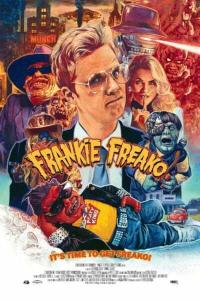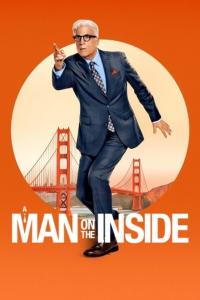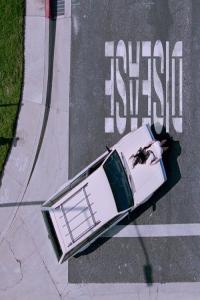Torrent details for "Dune.2021.720p.HDRip.900MB.x264-GalaxyRG" Log in to bookmark
Staff pick! This torrent was recommended by DarkAngie on 2021-10-18 18:19:13.
on 2021-10-18 18:19:13.
Controls:
Language:
 English
EnglishTotal Size:
896.57 MB
Info Hash:
691cbf78077b86411ccae7e0f777659f0f3a772f
Added By:
Added:
17-10-2021 04:05
Stats:
| Update
Thanks for rating :
Prom3th3uS





 (5), martinmate
(5), martinmate (5), LeftistDirtBag
(5), LeftistDirtBag (5), GGEEK (5), JennyL56 (5), icer86 (5), Badr
(5), GGEEK (5), JennyL56 (5), icer86 (5), Badr (5), jyphel (4), DRJK69
(5), jyphel (4), DRJK69 (5), BluudNut
(5), BluudNut

 (5), Papaevil
(5), Papaevil (5), slayerX (5), KillerAlpha
(5), slayerX (5), KillerAlpha (5), Scorpa
(5), Scorpa (5), DarkAngie
(5), DarkAngie (5), needtextbooks (5), vuzp (5), babaksaint
(5), needtextbooks (5), vuzp (5), babaksaint (4), cupelix1 (5), Monk57
(4), cupelix1 (5), Monk57
 (5), codenine
(5), codenine
 (5), 1stGD
(5), 1stGD (3), MadWatchdog
(3), MadWatchdog (5), P2P
(5), P2P (5), ToeCutter
(5), ToeCutter


 (5), PsychoLilThing
(5), PsychoLilThing





 (5), RavinL00n
(5), RavinL00n (5), LionQueen
(5), LionQueen (5), ArtGiddy (5), HOPEABLE
(5), ArtGiddy (5), HOPEABLE (5), JJBeStaR (5), Locutus
(5), JJBeStaR (5), Locutus (5), icemovies (5), Garthock
(5), icemovies (5), Garthock (5), CaptJack
(5), CaptJack (5), bOyCi
(5), bOyCi (5), Jak
(5), Jak (5),
(5),
Prom3th3uS
Name
DL
Uploader
Size
S/L
Added
4.39 GB
31,129
[243/85]
17/10/21 03:41
| Uploaded by TGxMovies | Size 4.39 GB | Health [243/85] | Added 17/10/21 03:41 |
20.32 GB
21,513
[192/45]
21/10/21 23:26
| Uploaded by TGxMovies | Size 20.32 GB | Health [192/45] | Added 21/10/21 23:26 |
-
2.12 GB
8,653
[65/12]
14/01/24 02:18
| Uploaded by EDGE2020 | Size 2.12 GB | Health [65/12] | Added 14/01/24 02:18 |
-
73.08 GB
1,698
[61/23]
28/05/24 03:17
| Uploaded by NAHOM1 | Size 73.08 GB | Health [61/23] | Added 28/05/24 03:17 |
Title:
Dune (2021)
Genre:
Adventure, Drama, Sci-Fi
Runtime:
155 min - Rating: 8.6
Director:
Cast:
Plot:
A mythic and emotionally charged hero's journey, "Dune" tells the story of Paul Atreides, a brilliant and gifted young man born into a great destiny beyond his understanding, must travel to the most dangerous planet in the universe to ensure the future of his family and his people. As malevolent forces explode into conflict over the planet's exclusive supply of the most precious resource in existence-a commodity capable of unlocking humanity's greatest potential-only those who can conquer their fear will survive.
Dune.2021.720p.HDRip.900MB.x264-GalaxyRG[TGx]
IMDB - https://www.imdb.com/title/tt1160419
-----------------------------------------------------------------------------------
GENERAL INFO
Genre: Action, Adventure, Drama, Science Fiction
Director: Denis Villeneuve
Stars: Timothée Chalamet, Rebecca Ferguson, Oscar Isaac, Zendaya, Jason Momoa
Plot: Paul Atreides, a brilliant and gifted young man born into a great destiny beyond his understanding, must travel to the most dangerous planet in the universe to ensure the future of his family and his people. As malevolent forces explode into conflict over the planet's exclusive supply of the most precious resource in existence-a commodity capable of unlocking humanity's greatest potential-only those who can conquer their fear will survive.
Included subtitles
English
-----------------------------------------------------------------------------------
COVER

-----------------------------------------------------------------------------------
SCREENSHOTS
(Click to enlarge)
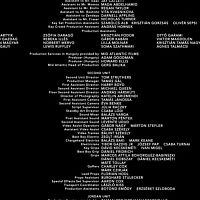


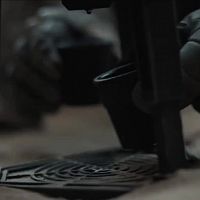

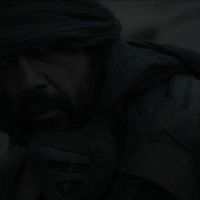
-----------------------------------------------------------------------------------
MEDIAINFO
Container = Matroska (mkv)
Duration = 02:28:56.231
Filesize = 897 MiB
Overall bitrate = 842 kb/s
Video
Codec info = AVC High@L3.1 | V_MPEG4/ISO/AVC
Resolution = 1280x516
Display AR = 2.474 | 2.474
Bitrate = 9 807 kb/s
Framerate = CFR 25.000
Color space = YUV
Chroma subsampling = 4:2:0
Encoder = x264 - core 157
Audio
Codec info = AAC | A_AAC-2
Channels = 2
Bitrate = 384 kb/s
Samplerate = 48.0 kHz
Language = English
Included subtitles
English
Need anything from us?
Drop your request @
User comments Sort newest first
by Guest-1925
on 2021-10-17 21:45:38
| got a really bad feeling about this film. i feel its gonna be visually stunning but incredibly boring to watch |
by Ryder1969
on 2021-10-17 08:57:00
| Thank you, thank you, thank you !!!!!!! I know what I'm watching tonight !!!! Oh , and did I say Thank you ??!!! |
by Guest-1854
on 2021-10-17 16:04:46
| seriously , everyone - if you have NOT seen this in the largest screen you can find, do yourselves a favour and watch it on the big screen first. It's a classic. |
by Guest-2811
on 2021-10-17 08:40:27
It was the Korg or Moog synthesizer that really screwed up the cam audio.
But it gives this movie a 80's soundtrack feel.
Thanks |
by Guest-1022
on 2021-10-23 11:18:51
| There won''t be part 2 at a 165 million budget and only grossing total 129 million. Wasn't worth the effort compared to the original which was the best plain and simple. |
by jaxe







on 2021-10-18 06:48:01
 | From the comments here and the reviews on the net, it seems this movie bores you for most of it 2 hours and 35 minutes to set it up for a sequel that may or may not happen. I hate it when they do that. At the very least they can make it worth watching and then open end it for a sequel and if the sequel doesn't get made, at least the audience enjoyed the movie and have something to remember it by and to rewatch. For example: Salt, True Lies, Inception, World War Z. |
by jaxe







on 2021-10-27 16:00:13
 | A sequel has been greenlit. It will be out in 2023 tentatively. By that time I don't think anyone will remember this first film nor care. |
by ComGetMe




on 2021-10-17 21:51:17
 | Other tan "thanks", "been waiting", pats on the back for the up, yada, yada, only Jaxe has give an opinion of the quality, and someone else commented "boring as shit" The rest of you, great use of the comment section, now bugger off. I think I'll just PM Reaper. |
by Guest-1306
on 2021-10-20 20:19:45
| If there can ever be a moment of triumph for a director, when the anxiety of influence is vanquished – for a bit, anyway – then Denis Villeneuve might have achieved it. This eerily vast and awe-inspiring epic, a cathedral of interplanetary strangeness, is better than the attempt a generation ago by an acknowledged master. David Lynch’s Dune from 1984 was an interesting, rackety, flawed movie that attempted to cram the entirety of Frank Herbert’s classic sci-fi novel into its running time – the result was like Flash Gordon without the laughs. Villeneuve, with his co-writers Jon Spaihts and Eric Roth, has used less than half the book (with a second episode to come) and allowed it room to grow: to breathe and drift through unimaginably vast reaches of fictional galaxies, with images of architecturally enormous spacecraft moving into view, or delicately lowering themselves on to alien landscapes of parched and austere beauty, particularly the ravishingly pure desert landmass of “Dune”, the contested planet itself. Star Wars’ debt to Dune, and now Dune’s debt to Star Wars, has been extensively discussed (amusingly, Dune gives us moving holograms rather like the one in which Princess Leia first begged Obi-Wan Kenobi for help). But this blockpulverising film feels more like TE Lawrence’s imperious version of The Phantom Menace. This is how it ought to have been. Dune’s story takes place millennia into the future, in which the ruling class live like Renaissance Italian princes, occasionally impressing wax seals on documents with signet rings as if they have just arrived at Hampton Court by boat. Timothée Chalamet plays Paul Atreides, son and heir to the distinguished Duke Leto Atreides (Oscar Isaac), whose family has just been ordered by the emperor to take up the lucrative governorship of the desert planet Arrakis, or “Dune”. It is their task to suppress or appease its indigenous people, the Fremen, but get the sole commercial exploitation rights for the planet’s mineral, “Spice”, which, properly refined, gives the consumer superhuman mental powers (although oddly this transformation is never shown on screen). The previous masters, the Harkonnen, led by its obese baron (Stellan Skarsgård) are furious at their ejection, but understand that this is a political stratagem by the emperor, to undermine the overweeningly powerful Atreides family with an impossible colonial posting. |
Comments need intelligible text (not only emojis or meaningless drivel).
No upload requests, visit the forum or message the uploader for this.
Use common sense and try to stay on topic.
No upload requests, visit the forum or message the uploader for this.
Use common sense and try to stay on topic.



















